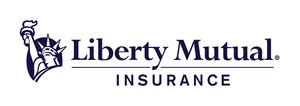
BOSTON, Feb. 22, 2012 /PRNewswire/ -- Marijuana use is on the rise among teens and is currently at its highest level among eighth- to-12th-graders in 30 years.(1) Perhaps equally disturbing is that one-in-five (19 percent) teen drivers reports that they have driven under the influence of marijuana, according to the most recent teen driving study by Liberty Mutual Insurance and SADD (Students Against Destructive Decisions). In fact, marijuana influence is significantly more prevalent among teen drivers than alcohol, as compared to the 13 percent of teens surveyed who report that they have driven after drinking.
(Logo: http://photos.prnewswire.com/prnh/20110607/NE15669LOGO)
The study, which Liberty Mutual and SADD have regularly conducted since 2000, highlights a dangerous misconception: many teens don't even consider marijuana use as a distraction to their driving. More than one-third (36 percent) of teens who have driven after using marijuana say the drug presents no distraction to their driving. Also alarming, among the teens who say they have driven after drinking, 19 percent of them believe alcohol use does not present a driving distraction.
"Marijuana affects memory, judgment, and perception and can lead to poor decisions when a teen under the influence of this or other drugs gets behind the wheel of a car," said Stephen Wallace, Senior Advisor for Policy, Research, and Education at SADD. "What keeps me up at night is that this data reflects a dangerous trend toward the acceptance of marijuana and other substances compared to our study of teens conducted just two years ago."
Indeed, in a prior Liberty Mutual Insurance/SADD study in 2009, 78 percent of teens were at the other end of the spectrum, characterizing marijuana use as "very" or "extremely" distracting to their driving. However, in the most recent study two years later, the percentage of teens who felt this high level of concern declined to 70 percent.
"Teens are faced with potentially destructive decisions everyday and don't always make the best ones," said Dave Melton, a driving safety expert with Liberty Mutual Insurance and managing director of global safety. "It's our job as mentors, parents, role models or friends to effectively communicate with them to ensure they are armed with the right information and aware of the dangers of marijuana and other substances, especially while driving."
Power of the Passenger
Friends do play a significant role, as most teen drivers say they would stop driving under the influence of marijuana (90 percent) or alcohol (94 percent) if asked by their passengers. Yet even teen passengers are seemingly less concerned about riding in a car with a driver who has used marijuana than with one who has used alcohol. While a significant majority (87 percent) of teen passengers would speak up and ask the driver to refrain from getting behind the wheel after drinking, only 72 percent of teen passengers would do the same for a driver who has used marijuana. Girls are far more likely to speak up to the driver than boys are in either circumstance.
Liberty Mutual Insurance and SADD have been working together since 1991 to help empower parents and teens to communicate openly about the critical issues young people face every day. Helpful information on how to effectively communicate, including tips on how to be a safe and responsible driver, can be found at www.LibertyMutual.com/TeenDriving. The website also provides guidelines from SADD and Liberty Mutual on how to have good family communication, information about distracted driving, state-by-state teen driving laws, practice permit tests, and video demonstrations of safe driving techniques including parallel parking. Other important safety information can be found at www.sadd.org.
About the Study
Liberty Mutual Insurance and SADD commissioned ORC International to conduct a qualitative and quantitative study to measure teen driving attitudes and behaviors. The study was initiated with a series of four focus groups held in Harrisburg, Pa., and San Francisco, Calif., in October 2010, followed by a survey of 2,294 teens in eleventh and twelfth grades from 28 recruited high schools across the country in January 2011. Overall findings for the study can be interpreted with a 95 percent confidence interval with an error margin of +/- 2.02 percent.
About Liberty Mutual Insurance
"Helping people live safer, more secure lives" since 1912, Boston-based Liberty Mutual Insurance is a diversified global insurer and the third largest property and casualty insurer in the U.S. based on A.M. Best Company's report of 2010 net written premium. Liberty Mutual Insurance also ranks 82nd on the Fortune 500 list of largest U.S. corporations, based on 2010 revenue. The company has over 45,000 employees located in more than 900 offices throughout the world.
The eighth-largest auto and home insurer in the U.S., Liberty Mutual Insurance (libertymutual.com) sells full lines of coverage for automobile, homeowners, valuable possessions, personal liability, and individual life insurance. The company is an industry leader in affinity partnerships, offering car and home insurance to employees and members of more than 13,500 companies, credit unions, professional associations and alumni groups.
About SADD
SADD, the nation's leading peer-to-peer youth education, prevention, and activism organization, is committed to empowering young people to lead initiatives in their schools and communities. Founded in 1981, today SADD has thousands of chapters in middle schools, high schools, and colleges. SADD highlights prevention of many destructive behaviors and attitudes that are harmful to young people, including underage drinking, other drug use, risky and impaired driving, and teen violence and suicide. To become a Friend of SADD or for more information, visit sadd.org, parentteenmatters.org or follow SADD on Facebook, Twitter and YouTube.
| Press Contacts: |
|
| Glenn Greenberg |
Deborah Burke Henderson |
| Liberty Mutual Insurance |
SADD |
| 617-574-5874 |
508-481-3568, ext. 231 |
(1) According to the University of Michigan and National Institute on Drug Abuse's 2011 Monitoring the Future Study.
SOURCE Liberty Mutual Insurance






Share this article